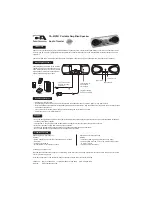
Figure 4: Flush mounting the loudspeaker
in a wall constructed of wood
Figure 5: Flush mounting the loudspeaker
in a wall constructed of concrete
Figure 6: Flush mounting the loudspeaker
in a wall constructed of a combination of
materials.
FACING PANEL
FIXED TO THE WALL
(50-100 mm / 2-4")
RUBBER GASKET
(5-10 mm / ¼-½")
SPEAKER
WALL
Figure 7: Covering the gap between the
wall and the loudspeaker enclosure.
CONCRETE
STRUCTURE
VIBRATION
ISOLATORS
f ~ 2-8 Hz
MULTI-LAYERED WALL
(WOOD, CONCRETE, BRICKS)
VIBRATION
ISOLATORS
f ~ 2-8 Hz
CONCRETE WALL
SAND
BAGS
VIBRATION
ISOLATORS
f ~ 2-8 Hz
HEAVY WOODEN WALL
ABSORBING
MATERIAL
tion to select the response curve required. If
more than one switch is set to 'ON' (within
one switch group) the attenuation value is no
longer accurate.
Vertical / horizontal mounting
Genelec HT320BC can be mounted verti-
cally or horizontally. If the loudspeaker's ori-
entation is changed, the DCW™ plate must
be rotated so that the treble and mid-range
drivers remain vertically aligned with the mid
driver at the bottom of the DCW™. Remove
the four corner screws of the DCW™ (use a
4 mm Allen key) and pull the plate carefully
out without stressing the wires and the gas-
ket. Rotate the plate 90 degrees in the appro-
priate direction and remount the screws.
Flush mounting
The HT320BC can be used flush mounted
into the wall structure, which offers some
acoustical benefits. No enclosure edge dif-
fraction will occur, resulting in an improved
response, especially at midrange frequen-
cies. Low frequency reflections from the wall
behind the loudspeaker can be avoided,
which improves the low frequency response
and efficiency and allows the loudspeaker
to work in half space conditions. In terms of
installation and orientation, the loudspeak-
er’s acoustic axis (See figure 1) should point
directly to the listening position. The loud-
speaker should be vertically aimed so that
the acoustical axis of the loudspeakers meet
around ear height at the reference listening
position. In the horizontal plane the loud-
speakers should be positioned according to
the multichannel (ITU-R BS.775-1) place-
ment recommendation.
The ceiling, side walls and especially the
rear wall should be acoustically absorbent at
low frequencies. The wall in which the loud-
speakers are mounted should have a high
acoustical mass to properly implement half
space radiation at low frequencies and be
angled so that the loudspeakers are correctly
aimed. However, the loudspeakers should
not be mounted too high as this increases
the required vertical tilt of the speaker (maxi-
mum tilt angle < 20 degrees) and reduces the
optimum listening area. Great care should be
taken over how the loudspeaker is mounted
into the wall. Note the following:
A space 50 to 100 mm (2 to 4”) wide can be
left around the loudspeaker. Cover the space
around the loudspeaker with a facing panel
that should be fixed to the wall. Leave a gap
of about 5 to 10 mm (¼ to ½”) between the
loudspeaker and the panel. Fill this gap with a
soft rubber gasket to allow for possible move-
ment (see figure 6).
Ensure that the loudspeaker cables can
reach the rear of the loudspeaker enclo-
sures.
Regardless of the type of front wall con-
struction the loudspeaker enclosure should
be mounted on vibration isolators, with a res-
onant frequency of 2 to 8 Hz, to prevent vibra-
tions from being transmitted to the wall and
impairing the low frequency performance.
If a heavy wooden front wall construction is
used, the space around the enclosure should
be filled with absorbent mineral wool or foam
plastic. The wooden wall structure must be
heavily braced to achieve sufficiently high
mass and rigidity (see figure 4).
In a solid wall (e.g. concrete) structure, the
space around the enclosure should be filled
with either absorbent mineral wool or sand
bags (see figure 5).
























